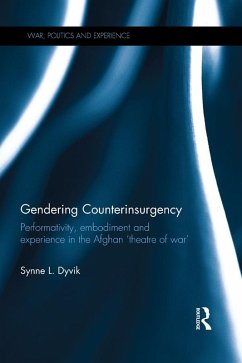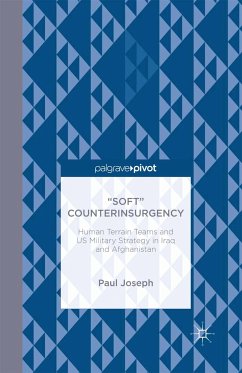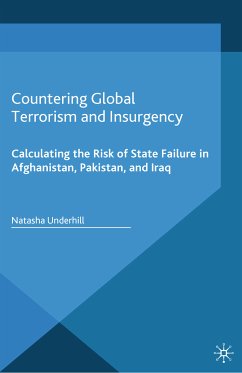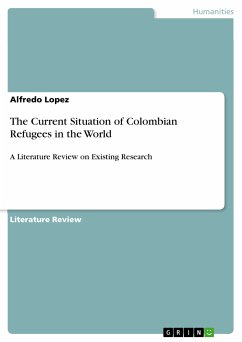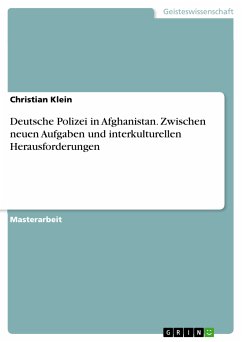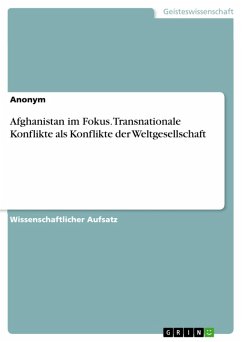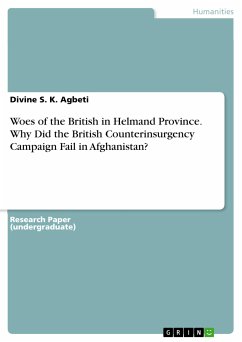
Woes of the British in Helmand Province. Why Did the British Counterinsurgency Campaign Fail in Afghanistan? (eBook, PDF)
Sofort per Download lieferbar
Statt: 17,95 €**
13,99 €
inkl. MwSt. und vom Verlag festgesetzt.
**Preis der gedruckten Ausgabe (Broschiertes Buch)
Alle Infos zum eBook verschenkenWeitere Ausgaben:

PAYBACK Punkte
0 °P sammeln!
Research Paper (undergraduate) from the year 2015 in the subject Sociology - War and Peace, Military, grade: 78, University of Portsmouth (School of Social Historical and Literary Studies), course: International Relations, language: English, abstract: At the heart of British counterinsurgency strategy is the "hearts and minds" (HAM) campaign which seeks to create space to advance political solutions leading to peace and stability. However, British strategy, embedded in the Joint UK Plan for Afghanistan, failed to win "hearts and minds" in Afghanistan and can be seen to have failed. This articl...
Research Paper (undergraduate) from the year 2015 in the subject Sociology - War and Peace, Military, grade: 78, University of Portsmouth (School of Social Historical and Literary Studies), course: International Relations, language: English, abstract: At the heart of British counterinsurgency strategy is the "hearts and minds" (HAM) campaign which seeks to create space to advance political solutions leading to peace and stability. However, British strategy, embedded in the Joint UK Plan for Afghanistan, failed to win "hearts and minds" in Afghanistan and can be seen to have failed. This article defines failure as the inability to set the conditions for "fostering the political process, establishing security, and stimulating economic development". It seeks to analyse what went wrong: examining strategy, application of COIN principles, context and resources. The paper contends that the principles outlined by Robert Thompson (1966) are a prerequisite to the execution of a successful COIN. The paper asks: did COIN fail through a departure from Thompson's principles, or under-resourcing, or the political context in Afghanistan, or the impact of US and NATO roles, or all of these factors. After a thorough investigation the findings are clear: Although the Joint UK Plan for Afghanistan adopted Thompson's principles, the study has revealed complete departure from those classical principles, causing challenges for the British COIN. The study has also demonstrated that the British failed to win HAM in Helmand because they could not provide security to advance political solutions leading to peace and stability due to tactical mistakes, limited resources, incompetence of Karzai's government and ethnic undercurrents, the US counterterrorism mission, and the relationship between the Taliban and Pakistan. The British were demonstrably under-prepared, under-resourced, and lacked a clear and achievable strategy to deliver COIN success in Afghanistan. These factors indicate a departure from Thompson's principles, leading to a complete failure in Afghanistan.
Dieser Download kann aus rechtlichen Gründen nur mit Rechnungsadresse in A, B, BG, CY, CZ, D, DK, EW, E, FIN, F, GR, HR, H, IRL, I, LT, L, LR, M, NL, PL, P, R, S, SLO, SK ausgeliefert werden.




